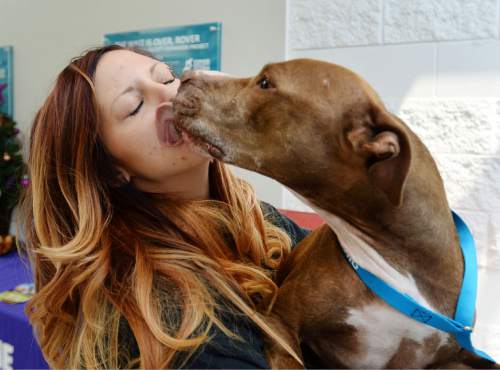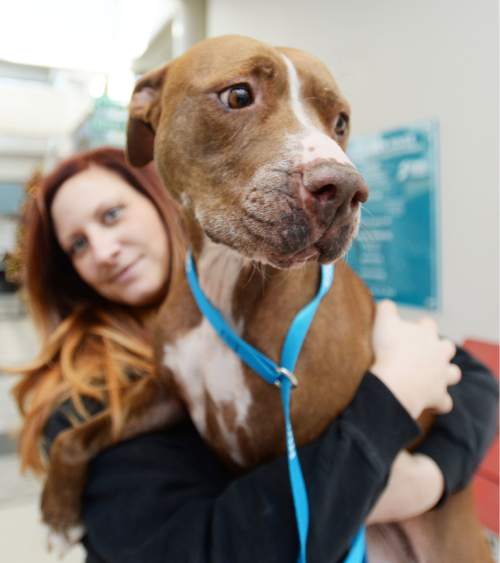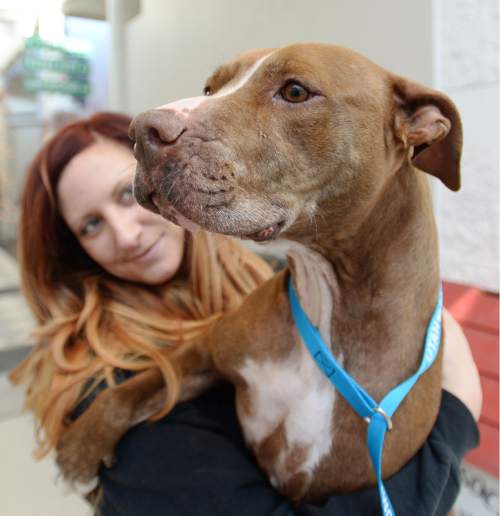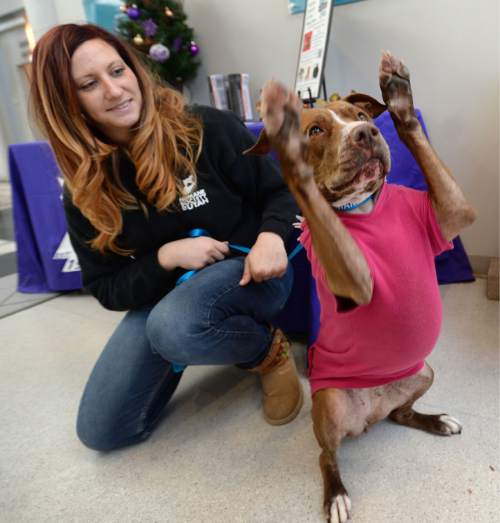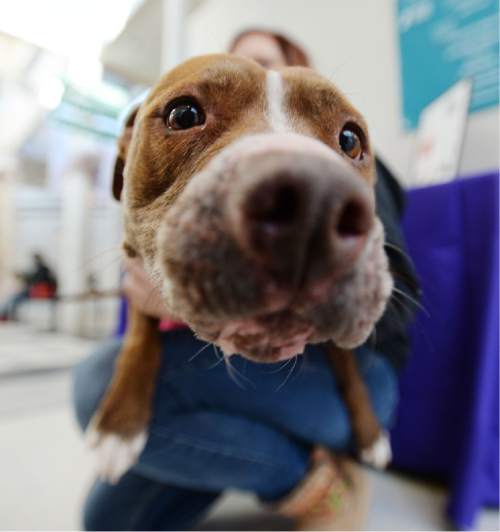This is an archived article that was published on sltrib.com in 2015, and information in the article may be outdated. It is provided only for personal research purposes and may not be reprinted.
New Year's Day officially ended years of legal discrimination against some groups in Utah.
A new law took effect Thursday to stop cities from banning specific breeds of dogs.
Pit bulls faced bans and restrictions in the past year in 10 Utah cities and towns, according to DogsBite.org: South Jordan, North Salt Lake, Springville, Delta, Duchesne, Fillmore, Garland, Honeyville, Morgan and Smithfield.
"There really is no credible evidence that breed determines whether a dog is dangerous," said Gene Baierschmidt, executive director of the Humane Society of Utah.
So new House Minority Leader Brian King, D-Salt Lake City, sponsored HB97 in the last legislative session, arguing that a variety of breeds had been unfairly targeted over the years because of bad acts by a few dogs.
"Some of you can remember the day when it wasn't pit bulls," King earlier testified. "It was German Shepherds. They were associated with World War II and Germans and being attack dogs. That went out of style. Then it became Dobermans and Rottweilers. They were the stigmatized breed. Now it's pit bulls."
For example, South Jordan — the major opponent to the new law — had passed a ban on pit bulls after a 1997 attack on a girl who was walking home.
"The photographs were gruesome," said Paul Cunningham, chief of staff for South Jordan. So "at citizens' request, the city council enacted the restrictions on pit bulls."
But Baierschmidt said, "Any dog breed has the potential of being vicious. Local government shouldn't jump to the conclusion that perhaps a breed that's been in the media a lot for being vicious will be vicious… . Even a Chihuahua can be a vicious dog. It doesn't matter on the size or the breed."
King said when he was asked to sponsor the bill, he initially was hesitant because of likely criticism that legislators should not micromanage cities (which the Utah Association of Cities and Towns later charged).
But he said retiring Rep. John Mathis, R-Vernal, who is a veterinarian, told him, "'It's wrong to target a specific breed. There are aggressive pit bulls, but there are lots of dogs that are more aggressive than pit bulls.'… He thought the bill was a good idea."
King said that view "dovetailed well with arguments that it would help protect private property interests" of residents who wanted pit bulls, "so it had a lot of appeal to many conservatives" who hold the majority in the Legislature.
King said this week he's happy his bill is taking effect because "it moves us away from stigmatizing a specific breed of dog," and moves the legal focus to owners who may play the key role in whether a dog is vicious.
"If you ill treat an animal or you teach them to be aggressive because you want to breed a junk-yard dog, that's not right. You're doing the dog a disservice, and you're doing your neighbors a big disservice," he said.
Because of the new state law, South Jordan passed a new animal ordinance on Nov. 18 that did away with its ban on pit bulls, and more.
"We focused on behavior of certain dogs, not breeds," Cunningham said.
"We updated the whole ordinance at the same time. If someone has a dog that becomes a danger to the community, we put some pretty restrictive kinds of things, including some insurance requirements and signage requirements to try and protect the public."
Cathy Boruch, executive director of Paws for Life pet rescue in Heber City, said pit bulls can make great family pets.
"It's all based on how they are trained, how they are treated and how they are understood by members of the family," she said. "They are no different than other breeds of dogs, except in the sense that they often need strong leadership."
Pit bulls, Boruch added, "are extremely loyal and faithful and good to people in their family.... They are great pets."


